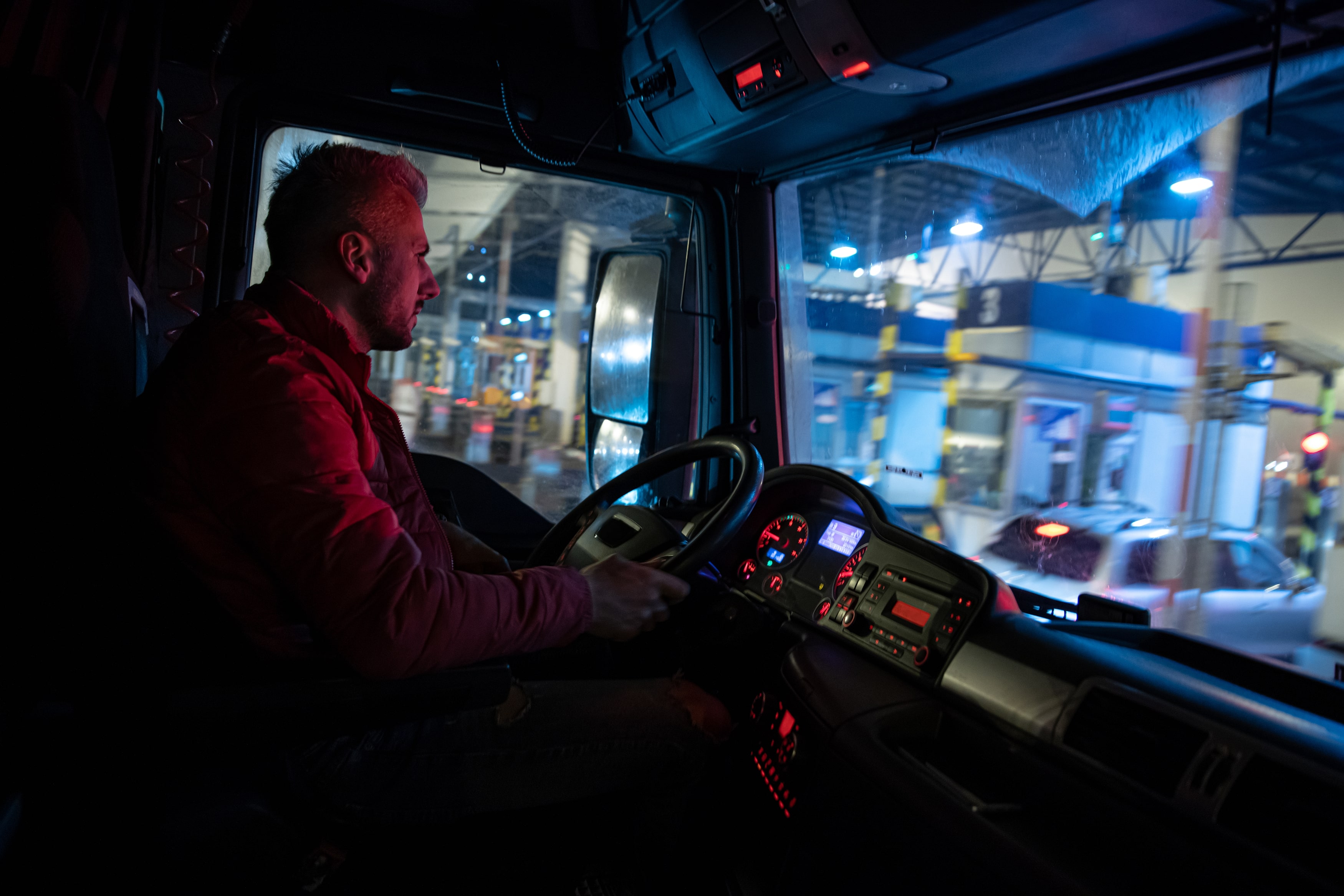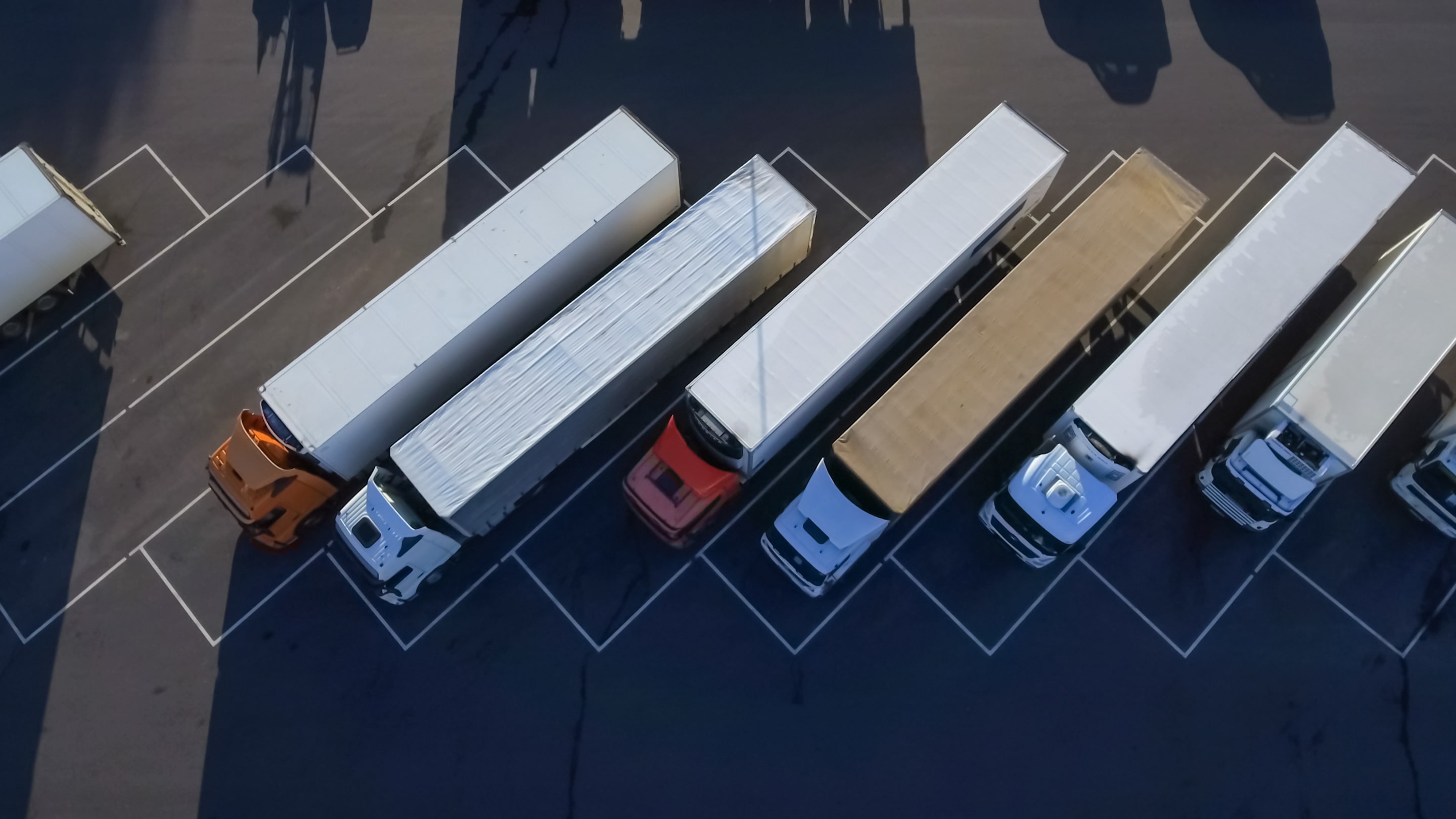
Guest
Remédier à la pénurie de conducteurs de poids lourds au Royaume-Uni en 2024/2025
Créée: 16/08/2024
•
Mise à jour : 10/10/2024
La pénurie de chauffeurs de poids lourds au Royaume-Uni est un problème complexe et multiforme, qui a des répercussions considérables sur l'économie et les chaînes d'approvisionnement du pays. Toutefois, les efforts concertés du gouvernement, de l'industrie et des parties prenantes ont commencé à donner des résultats positifs, ce qui laisse penser que le vent est en train de tourner.
À l'horizon 2024 et 2025, l'engagement continu du Royaume-Uni à remédier à la pénurie de conducteurs, associé à la volonté d'attirer et de retenir des personnes talentueuses, sera crucial pour assurer la résilience et la prospérité à long terme du secteur des transports.
L'ampleur de la crise
La pénurie de conducteurs de poids lourds au Royaume-Uni est de plus en plus préoccupante et la situation atteindra un point critique en 2021. Selon les rapports de l'industrie, le pays était confronté à une pénurie d'environ 100 000 conducteurs de poids lourds au plus fort de la crise. Ce chiffre représente une augmentation significative par rapport à la pénurie de 59 000 conducteurs signalée en 2019, soulignant la détérioration rapide de la situation.
Les facteurs contribuant à cette pénurie étaient multiples, notamment l'impact de la pandémie de COVID-19, les conséquences du Brexit et les modifications des règles fiscales IR35 qui ont affecté les conducteurs de poids lourds employés par des agences sur une base contractuelle. Ces perturbations ont conduit de nombreux conducteurs expérimentés à quitter le secteur, tandis qu'il n'y avait pas assez de nouveaux talents sur le marché pour combler le vide.

Intervention du gouvernement et efforts de l'industrie
Reconnaissant la gravité de la situation, le gouvernement britannique et les acteurs du secteur ont pris des mesures décisives pour remédier à la pénurie de conducteurs de poids lourds. Le ministère des Transports a fait état d'une amélioration notable, le pourcentage de postes vacants de conducteurs de poids lourds signalés par les entreprises de transport étant passé de 43 % au 4e trimestre 2021 à 23 % au 3e trimestre 2023.
L'une des principales mesures mises en œuvre a été l'augmentation des fonds destinés à attirer et à former de nouveaux conducteurs de poids lourds. Le gouvernement a également accéléré le processus d'obtention des permis de conduire des poids lourds et a investi 8 millions de livres pour améliorer la qualité des aires de repos des poids lourds, s'attaquant ainsi au problème de longue date des mauvaises conditions de travail des chauffeurs.
SNAP a aidé plusieurs parcs à camions britanniques à introduire des demandes de financement auprès du gouvernement pour améliorer leurs installations. Pour en savoir plus sur les parcs à camions faisant partie du réseau SNAP.
S'attaquer au vieillissement de la main-d'œuvre et attirer de jeunes talents
L'un des défis persistants du secteur des chauffeurs de poids lourds est le vieillissement de la main-d'œuvre, l'âge moyen des chauffeurs étant de 48 ans. Le secteur a du mal à attirer les jeunes talents, car la perception de mauvaises conditions de travail, de salaires moyens et d'une carrière peu stimulante en a dissuadé plus d'un d'envisager une carrière de chauffeur routier.
Pour remédier à cette situation, le gouvernement a récemment lancé une consultation en vue d'abaisser l'âge minimum requis pour les conducteurs d'autobus et d'autocars, ce qui pourrait ouvrir davantage de possibilités aux jeunes d'entrer dans le secteur des transports. Cette mesure, associée aux efforts déployés pour améliorer les installations et les conditions de travail des conducteurs, pourrait contribuer à rendre le secteur plus attrayant pour la prochaine génération de travailleurs.
Voir la [carte] (https://snapacc.com/map/) des parkings pour camions, des stations de lavage de camions et des hébergements dans les différentes régions couvertes par le réseau SNAP.

Surmonter les obstacles réglementaires et adopter la flexibilité
Un autre facteur contribuant à la pénurie de conducteurs de poids lourds est constitué par les obstacles réglementaires et la paperasserie auxquels les nouveaux conducteurs sont confrontés lorsqu'ils entrent dans le secteur. Le processus d'obtention des permis et certifications nécessaires peut être long et coûteux, ce qui dissuade les candidats potentiels.
Pour remédier à cette situation, les acteurs du secteur ont plaidé en faveur de procédures de formation et d'examen plus souples, à l'instar de l'approche adoptée par les compagnies d'autobus. En rationalisant le processus et en le rendant plus accessible, on espère augmenter le nombre de conducteurs qualifiés entrant sur le marché.
L'impact du Brexit et du COVID-19
La pénurie de conducteurs de poids lourds au Royaume-Uni a été compliquée par les conséquences du Brexit et les perturbations causées par la pandémie de COVID-19. La perte des conducteurs de l'UE, qui constituaient auparavant une part importante de la main-d'œuvre britannique dans le secteur du transport routier, a été un coup dur.
En outre, l'impact de la pandémie sur la formation et les tests a entraîné une accumulation de nouveaux conducteurs sur le marché. Avec la reprise économique, l'augmentation de la demande de biens et de services a exercé une pression encore plus forte sur le secteur des transports, déjà très sollicité.

Collaboration et innovation
Pour remédier à la pénurie de conducteurs de poids lourds, il faudra un effort de collaboration entre le gouvernement, les acteurs de l'industrie et les établissements d'enseignement. En travaillant ensemble, ils peuvent élaborer des solutions globales qui s'attaquent aux causes profondes du problème et créer un système de transport plus durable et plus résistant.
L'adoption d'approches innovantes, telles que l'utilisation de la technologie pour optimiser la logistique et améliorer l'efficacité des conducteurs, peut également jouer un rôle crucial dans l'atténuation de l'impact de la pénurie de conducteurs. Les investissements dans les infrastructures, les programmes de formation et les initiatives axées sur les conducteurs peuvent contribuer à créer une main-d'œuvre plus forte, plus diversifiée et plus résistante.
Le chemin à parcourir
Alors que le Royaume-Uni navigue dans le paysage changeant de la pénurie de conducteurs de poids lourds, il est clair que la solution nécessitera une approche à multiples facettes. Le soutien continu du gouvernement, la collaboration de l'industrie et l'engagement d'attirer et de retenir des conducteurs talentueux seront essentiels pour assurer la résilience du réseau de transport national.
Même si la crise n'est pas totalement résolue dans l'immédiat, les mesures prises jusqu'à présent laissent entrevoir une lueur d'espoir. En continuant à mettre l'accent sur l'innovation, la flexibilité et l'inclusivité, le Royaume-Uni peut travailler à un avenir où le secteur des transports sera équipé pour répondre aux demandes croissantes de l'économie et aux besoins de ses citoyens.


